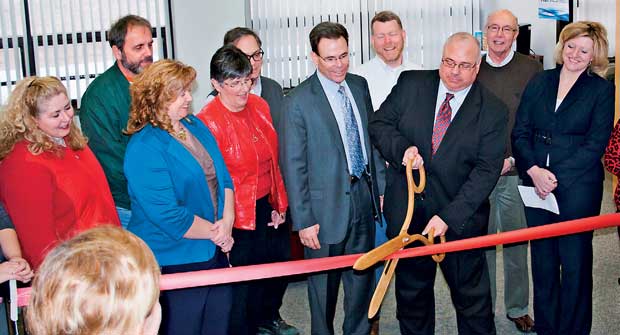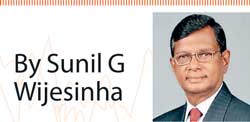26 Jul 2016 - {{hitsCtrl.values.hits}}


Sri Lanka is well known for prolonged and unproductive opening ceremonies. We desperately need a new culture where opening ceremonies are short, precise, productive and focused to achieve the desired objective. Opening ceremonies are of varied types and are held for different purposes but there are some common aspects which we could quite easily improve.
Punctuality
About a year ago, I attended an opening ceremony of an annual convention of a professional body. I arrived at the venue at the time indicated in the invitation card for ‘invitees to be seated’. There were a few other invitees who had taken the time seriously. However even the organisers were not present when I arrived. There was no one to welcome the invitees. When the organisers finally arrived, and I mentioned that I had taken the ‘invitees to be seated time’ seriously they merely laughed and said “otherwise everyone will come late no?”. In other words, he was further propagating the culturethat everyone in Sri Lanka gets late, and therefore one needs to give a time well before the actual start. Sri Lankans being smart people are wise to this,and come deliberately later knowing very well that the event will not start on time. It becomes a vicious cycle. Of course there are exceptions, but not many.
Several years ago I was at a programme organized for Sri Lankan managers in a Japanese city. The opening ceremony was to have presence of the Sri Lankan ambassador. I as the group leader waited at the entrance along with the President of the organizing body to receive the Ambassador. Even after fifteen minutes past the scheduled start time there was no sign of him. Quite annoyed, the President decided to commence proceedings and the Ambassador had to make his way to the seminar room all by himself,when he arrived much later. In my first training programme in Japan in 1980 participants from many Asian countries met in the hotel lobby in the morning of the opening ceremony and were shocked to find in the newspapers that there had been an earthquake the previous day in a city away from Tokyo.There were pictures of broken bridges and damaged roads. We were informed that some special guests, speakers and resource persons from places like Nagoya were unable to make it on time, but they announced that the programme will, no matter what, commence as scheduled at 9 am with the opening ceremony rescheduled for the afternoon, and lectures in the morning.
The programme, adjusted accordingly,took off exactly on time. A few years later in Sri LankaI met some of these same Japanese resource persons when they arrived to conduct a seminar here. Half an hour after the scheduled start of the seminar there was no sign of commencement because not even half the registered participants had arrived. TheJapanese lecturers seemed visibly upset, and asked me what was wrong. When I told them that it is raining outside and hence the delay in the arrival of participants they just stared at me in disbelief. Probably they were thinking to themselves ‘no wonder your progress is so poor because in Japan even an earthquake cannot stop us, but here in Sri Lanka even rain can disrupt your lives’. Therefore, the first lesson is ‘please commence and conclude opening ceremonies on time’.
The role of Chief Guest
If the Chief Guest is a politician, he will most likely arrive late. The whole opening ceremony programme is disrupted and falls behind schedule. Just last week the Chief Guest Minister arrived more than half an hour late for an inaugural ceremony. This is a South Asian problem. In India, I experienced an innovative solution to keep the audience entertained while waiting for a political dignitary. They call upon an entertainer who will regale the audience with jokes until the Chief Guest is sighted.
The audience seemed to enjoy it judging by their reaction. May be we in Sri Lanka should consider adopting it, if we fail to get politicians to be punctual. Many years ago I was organizing an international conference and the Chief Guest Minister did not turn up on time. When there was no sign of the Minister even half an hour later and being embarrassed about keeping over 500 foreign delegates waiting, I informed a Head of a Department coming under the purview of the Minister that I will commence proceedings without the Minister. His shocking response was “most foreign delegates are from Asia and they are quite used to Ministers coming late, so please wait for the Minister”. The Minister did not arrive, and the Deputy Minister arrived very much later, and I regret that decision to wait,ever since.
In many instances, I find that the Chief Guest is not briefed adequately, and even goes completely off the topic and may go at a tangent with his own pet subject. In one instance many years ago the theme of the conference was ‘The Sri Lankan Work Ethic’ and the proceedings were all about how to inculcate a work ethic in Sri Lanka similar to the Protestant Work Ethic or the Confucian Work Ethic.
The Chief Guest completely misunderstood the theme and gave his own piece about medical ethics and business ethics, confusing almost completely the registered delegates. Another Chief Guest gave a comprehensive description about the Association and its activities at an Annual General Meeting of the Association consisting only of its own members who knew all about themselves more than any other.
It is therefore imperative that the Chief Guest be comprehensively briefedand is provided relevant inputs for him or his staff to prepare the speech. Very often the speeches take far more than the time allocated. Some politician Chief Guests first deliver their impromptu speech and thereafter read the entire speech prepared by the Ministry. Even senior public servants and senior private sector corporate leaders too stand accused of overstepping the time allowed.
The Oil Lamp
Then comes the lighting of the oil lamp and this takes far too much time to light all the wicks. At a conference in India recently only one lamp was lit and that was by the Chief Guest. The compere invited the Chief Guest to light the single lamp and “illuminate the proceedings”. I followed this method and started a culture where only three lamps will be lit at opening ceremonies: The President, The Chief Guest, and the Keynote Speaker. I even wanted to arrange for the three persons to light the lamp at the same time with three candles lit and ready, but the rest of the organizing committee disagreed saying that I am carrying productivity too far.I still believe that it is not culturally offensive to use more than one candle if you are lighting many wicks.
Cultural items
Having cultural dance items are most welcome, if there is a significant number of foreign delegates. However, if many of your invitees are busy corporate leaders and the opening is in the morning hours they have no interest in dances because they want to go to office as soon as possible. Most corporate executives have seen these dances again and again, and will spend their time checking their emails on their smart phones while the dances are on.
The programme and speeches
Usually when speeches are made, many areas unnecessarily overlap. The head of the Organisation or Association will welcome the invitees, provide a description of the event and also thank everyone. The next speaker too will give his own welcome, give details of the proceedings to follow and again thank all those concerned. Usually the time allocation is totally ignored and when the speaker realizes that he may have overstepped his time he meekly asks the organizer whether he can take a few minutes more, or even worse asks “do I have time left” when he has already exceeded his time by 50 percent.
The organizer, if he is polite, says “it’s alright you can go on”. That’s the cue the speaker wanted to go on and on. Can speakers be advised to time their speeches beforehand? At the Vote of Thanks once again everyone will be thanked and sometimes the person delivering the vote of thanks will make his own speech and his own interpretation of the event, which is quite unnecessary.
A principle to follow in a vote of thanks is that it is not necessary to thank suppliers of services you have contracted on a commercial basis, unless some extra-ordinary service was supplied. A well known corporate leader once said it is not necessary to thank the person who swept the floor and vacuumed the carpets. It is usually not necessary to thank your colleagues on the organising committee etc.
At the end of the opening ceremony many hours have been wastedwith little value addition. In fact, during the morning tea break just after the conclusion of an inaugural session of a two-day seminar by a Japanese lecturer many years ago, one participants said “we paid and participated in this seminar not to listen to your President’s speech about your Organisation, nor to listen to the Minister who spoke of all his wonderful achievements, but to learn from the Japanese lecturer. We wasted one session with no value addition”. After that we gave up inaugural sessions and used up the entire time for the technical sessions.
The way forward
If we are interested in promoting a culture of productivity, and and if we wish to create an image that Sri Lanka is an efficient country with efficient events, then we need to seriously look at making these opening ceremonies short and sweet. An ideal opening ceremony would be 2 hours or less unless there is a keynote speaker. I am certain that more invitees would attend short opening ceremonies, and that’s what organisers would want, rather than having invitees just ‘showing their face’ at the start and leaving the event when they find that the programme is way behind schedule.
(The writer is a Management Consultant/ Company Director)
10 Jan 2025 2 hours ago
10 Jan 2025 2 hours ago
10 Jan 2025 3 hours ago
10 Jan 2025 4 hours ago
10 Jan 2025 4 hours ago